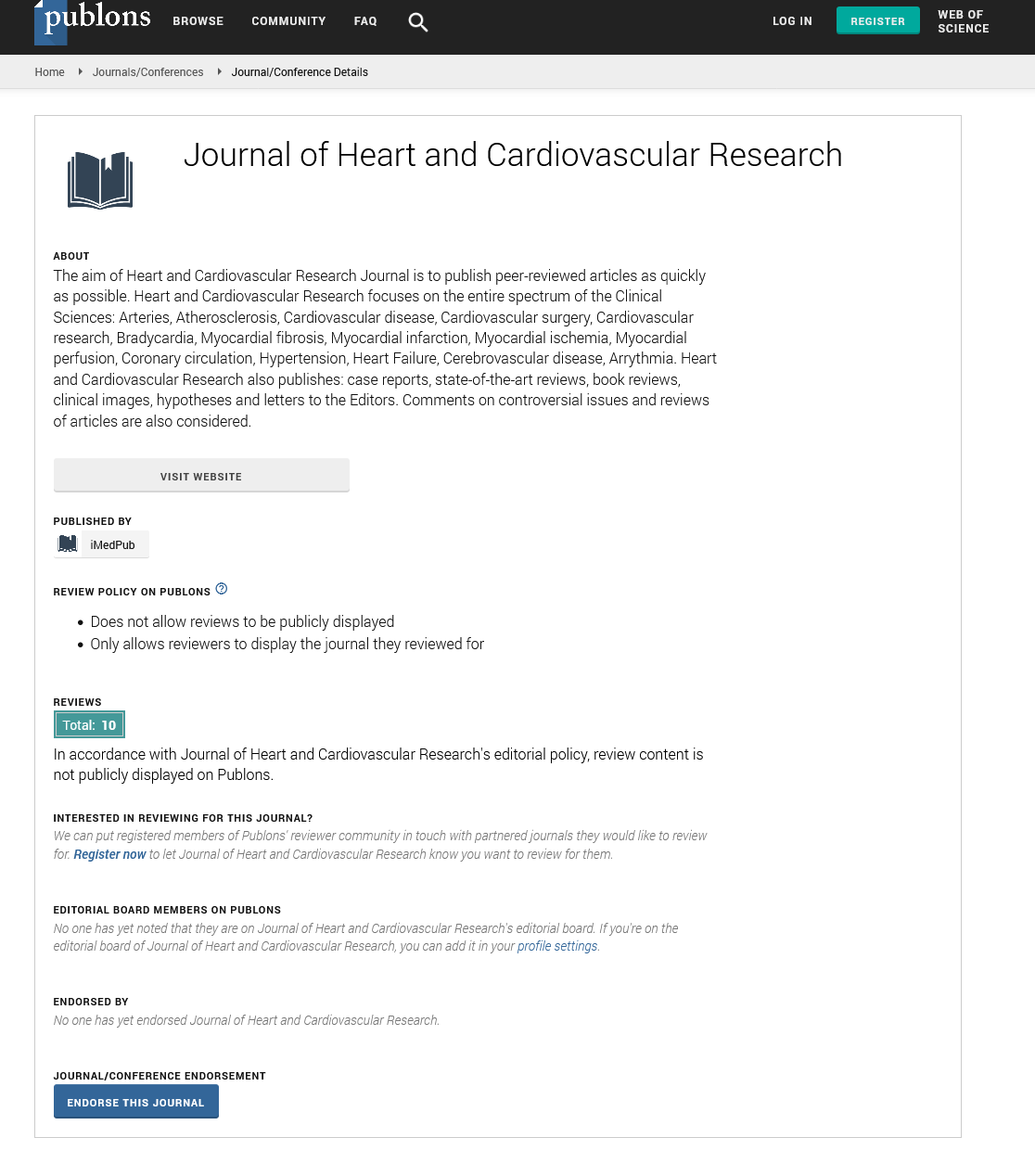ISSN : ISSN: 2576-1455
Journal of Heart and Cardiovascular Research
Abstract
Complex Interlinked Connections between Stage- Hypertension & Genetic Factors
Background: Hypertension is considered to be a complex trait to which genetic, environmental, and demographic factors contribute interactively. Recently, molecular genetic studies have achieved remarkable success in the elucidation of causative mutations in several Mendelian hypertensive disorders in which single nucleotide polymorphisms (SNPs) disrupt the function of single genes, thereby leading to unambiguous phenotypes. It seems unlikely, however, that such a simple base-substitution is the primary mechanism in cases of Stage- Hypertension, even if SNPs modify the relevant gene function to some extent. Despite the enormous efforts made to date, no consistent association between any of the candidate genes and essential hypertension has been established. One plausible explanation is that because individual genes play modest role the pathogenesis of hypertension, confounding variables, whether individual (sex, ethnic origin, etc.) or environmental, may decrease the chance of identifying a causative relation between the genes and hypertension, depending on the populations studied. Several approaches can be proposed to overcome this problem, including long-term follow-up of clinical events collected to attain sufficient phenotypic information and statistical power. With the recent advances in high-throughput genotyping techniques and bioinformatic strategies, it has become possible to perform even SNP-based genome-wide screening. At present, however, the need for identification of susceptibility for hypertension still poses a great and unanswered challenge. Identifying further genes - probably conferring even smaller attributable risks represents major challenge for future developments In this This contrasts markedly with the success that has been achieved in the past 5 years in solving the molecular genetics of a number of rare familial hypertension syndromes. The true incidences of some of these disorders may be higher than first appreciated, but it is still unclear if the genes for these syndromes also play a part in Stage-I Hypertension. A more complete understanding of the genetic basis of essential hypertension should be possible in the coming years using new strategies that take advantage of the information provided by the human genome project.
Author(s): Sunil Hariram Pal
Abstract | Full-Text | PDF
Share This Article
Google Scholar citation report
Citations : 34
Journal of Heart and Cardiovascular Research received 34 citations as per Google Scholar report
Journal of Heart and Cardiovascular Research peer review process verified at publons
Abstracted/Indexed in
- Google Scholar
- Sherpa Romeo
- China National Knowledge Infrastructure (CNKI)
- Publons
Open Access Journals
- Aquaculture & Veterinary Science
- Chemistry & Chemical Sciences
- Clinical Sciences
- Engineering
- General Science
- Genetics & Molecular Biology
- Health Care & Nursing
- Immunology & Microbiology
- Materials Science
- Mathematics & Physics
- Medical Sciences
- Neurology & Psychiatry
- Oncology & Cancer Science
- Pharmaceutical Sciences
